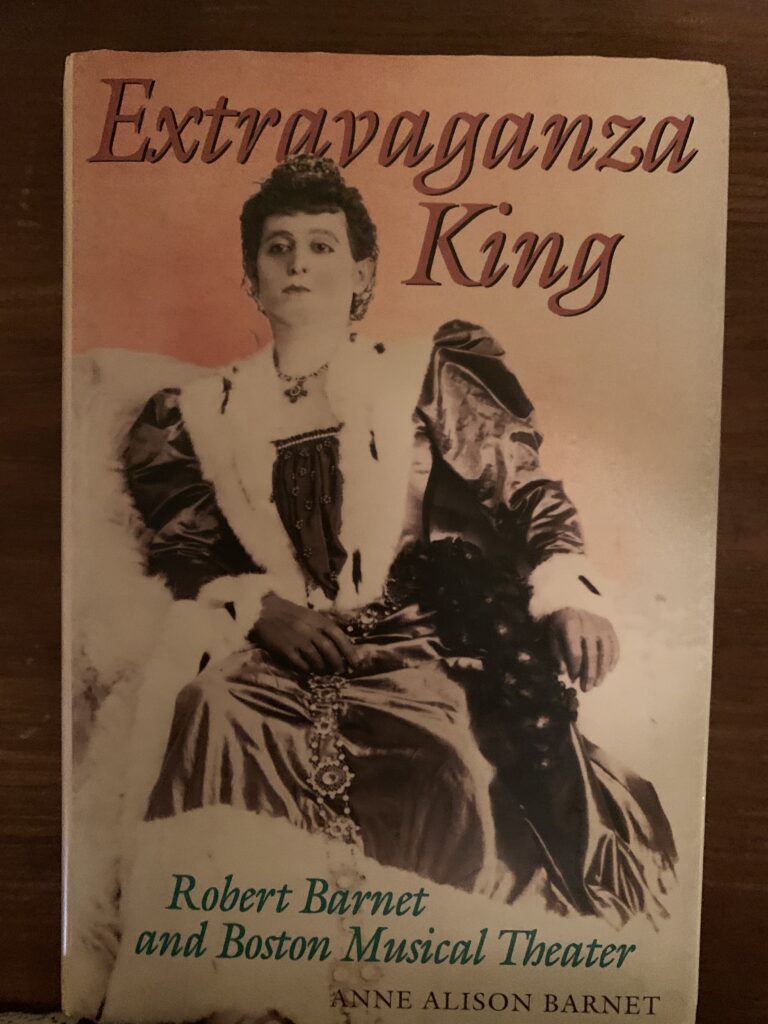South End Author Discovers Her Great-Grandfather
By Alison Barnet
 Don’t they feel something when you discover them? When you stand in front of the houses they lived in, the schools they went to? Don’t they feel a slight frisson when you order their birth, death, and marriage records—pieces of paper that haven’t moved for years because nobody ever asked for them?
Don’t they feel something when you discover them? When you stand in front of the houses they lived in, the schools they went to? Don’t they feel a slight frisson when you order their birth, death, and marriage records—pieces of paper that haven’t moved for years because nobody ever asked for them?
Standing at card catalogs (now outmoded), I know it’s been at least a century since anyone lingered over certain obscure headings, let along called for items such as “Boston Bank Officers’ Association—By-Laws” or “Baron Humbug—clipping file.” Has anyone else’s arm stopped pumping the microfilm reader wheel at just this place and strained to read: “Such capers as the magic influence of the evening caused!”
This was me, researching and writing a book about Robert Ayres Barnet, my great-grandfather, a popular figure in Boston’s musical theatre 1890-1906. Although most of the males in my family are named Robert Ayres Barnet—there’s even a Robert Ayres Barnet VI—no one ever knew much of anything about Robert Ayres Barnet I, the playwright. My grandfather did have a photo on his wall of his father playing Queen Isabella of Spain.
In the early 1980s, word got around that someone had written a Ph.D. dissertation on Barnet. In the copy that came to me, my grandfather had written, “Perhaps in looking though this you’ll want to do some research in Boston”—a prophetic remark and eventually a huge understatement. Right away, a line jumped out at me: “In 1862, Robert Barnet…came to Boston, and entered the Dwight School, on Springfield Street.” Well, I live on Springfield Street, and I figured that if he had gone to the Dwight he too must have lived in the South End of Boston. After a little digging, I found out he lived 20 years in my neighborhood. Or had I lived 20 years in his?
As a young sugar merchant living in Ashmont, Dorchester, Barnet became involved in local minstrel shows, which led into writing Injured Innocents for Boston’s First Corps of Cadets in 1890. He was the librettist of 12 burlesques and extravaganzas for these well-heeled “citizen soldiers” over the next 16 years; his theatricals ultimately raised more than $250,000 toward building the Cadets’ armory (known today as the Park Plaza Castle). His biggest successes were: 1492 (1892), Excelsior, Jr. (1895), and The Strange Adventures of Jack and the Beanstalk (1896). They were picked up by professional companies and had runs in New York and on tour.
Oh, such girls, with such slender waists, and such clean shaves!
O, such dances!
Ah, such triumphs in the millinery life by men from the military line!
Ah, such jokes!
My, my, such tropical topical songs!
Boston Globe, January 30, 1894
The “Cadets’ Laureate” not only wrote the plays and many of the lyrics, he was stage manager, costume designer and, in the early plays, actor— in 1492, he played Queen Isabella. (When my book came out, I started giving talks called “My Great-Grandfather was Queen Isabella of Spain.) He collaborated with well-known composers of the day, such as George Chadwick, and he wrote and staged two big shows for other groups, notably the Boston Bank Officers’ Association. Miss Simplicity (1901) and Baron Humbug (1903) both showcased the young Julian Eltinge, who went on to nearly 30 years of fame as a female impersonator.
Barnet left Boston for New York in 1908 hoping for further success, but times had changed and he never sold another. He died in 1933.
What will a Boston winter be without Cadet theatricals? For more than fifteen years the Cadets have enlivened Boston winters by their extravaganzas and from “Injured Innocent” down to “Boodle & Co. they have given jolly shows, jingly comedians, dazzling ballets–dazzling when one considers that every dancer was a man…
Boston Transcript, Feb. 6, 1906
_____________________
Alison Barnet is a Boston author who wrote ‘Extravaganza King, Robert Barnet and Boston Musical Theater’
Northeastern University Press, 2004. Her most recent book is ‘Once Upon a Neighborhood: A Timeline and Anecdotal History of the South End of Boston.’